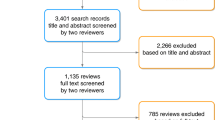Abstract
Health resort programs have a long tradition, mainly in European countries and Japan. They rely on local resources and the physical environment, physical medicine interventions and traditional medicine to optimise functioning and health. Arguably because of the long tradition, there is only a limited number of high-quality studies that examine the effectiveness of health resort programs. Specific challenges to the evaluation of health resort programs are to randomise the holistic approach with a varying number of specific interventions but also the reliance on the effect of the physical environment. Reference standards for the planning and reporting of health resort studies would be highly beneficial. With the International Classification of Functioning Disability and Health (ICF), we now have such a standard that allows us to describe body functions and structures, activities and participation and interaction with environmental factors. A major challenge when applying the ICF in practice is its length. Therefore, the objective of this project was to identify the ICF categories most relevant for health resort programs. We conducted a consensus-building, three-round, e-mail survey using the Delphi technique. Based on the consensus of the experts, it was possible to come up with an ICF Core Set that can serve as reference standards for the indication, intervention planning and evaluation of health resort programs. This preliminary ICF Core Set should be tested in different regions and in subsets of health resort visitors with varying conditions.

Similar content being viewed by others
References
Cieza A, Brockow T, Ewert T, Amman E, Kollerits B, Chatterji S, Üstün B, Stucki G (2002) Linking health-status measurements to the international classification of functioning, disability and health. J Rehabil Med 34:205–210
Goodman CM (1987) The Delphi technique: a critique. J Adv Nurs 12:729–734
Grootendorst DC, Dahlen SE, Van Den Bos JW, Duiverman EJ, Veselic-Charvat M, Vrijlandt EJ, O’Sullivan S, Kumlin M, Sterk PJ, Roldaan AC (2001) Benefits of high altitude allergen avoidance in atopic adolescents with moderate to severe asthma, over and above treatment with high dose inhaled steroids. Clin Exp Allergy 31(3):400–408
Jones J, Hunter D (1995) Consensus methods for medical and health services research. BMJ 311:376–380
Linstone HA, Turoff M (eds) (1975) The Delphi technique: techniques and applications. Addison Wesley, London
Michalsen A, Ludtke R, Buhring M, Spahn G, Langhorst J, Dobos GJ (2003) Thermal hydrotherapy improves quality of life and hemodynamic function in patients with chronic heart failure. Am Heart J 146(4):E11
Schuh A (1993) Climatotherapy. Experientia 49:947–956
Strauss-Blasche G, Ekmekcioglu C, Vacariu G, Melchart H, Fialka-Moser V, Marktl W (2002) Contribution of individual spa therapies in the treatment of chronic pain. Clin J Pain 18(5):302–309
Stucki G, Grimby G (2004) Applying the ICF in Medicine. J Rehabil Med (Suppl 44):5–6
Stucki G, Kroeling P (2003) Principles of rehabilitation. In: Hochberg MC, Silman AS, Smolen JS, Weinblatt ME, Weisman MH (eds) Rheumatology, 3rd edn Mosby, Edinburgh, p 517–530
Stucki G, Ewert T, Cieza A (2003) Value and application of the ICF in rehabilitation medicine. Disabil Rehabil 25:628–634
Ustun B, Chatterji S, Kostanjsek N (2004) Comments from WHO for the Hournal of Rehabilitation Mmedicine Special Supplement on ICF core sets. J Rehabil Med (Suppl 44):7–8
van Tubergen A, van der Linden S (2002) A brief history of spa therapy. Ann Rheum Dis 61:273–275
Verhagen AP, Bierma-Zeinstra SM, Cardoso JR, de Bie RA, Boers M, de Vet HC (2003) Balneotherapy for rheumatoid arthritis. Cochrane Database Syst Rev 4:CD000518
Weigl M, Cieza A, Andersen A, Kollerits B, Amann E, Füssl M, Stucki G (2004) Identification of the most relevant ICF categories in patients with chronic health conditions: a Delphi exercise. J Rehabil Med (Suppl 44):12–21
WHO (2001) International classification of functioning, disability and health: ICF. WHO Library, Geneva
Acknowledgements
We thank the participants of the Delphi exercise for their valuable contribution and their time in responding to the demanding questionnaires : Agishi Y, Baird C, Bálint G, Bellometti S, Bender T, Berliner M, Berzina G, Coccheri S, Forestier R, Géher P, Harari M, Karagülle M Z, Knüsel O, Korkuczanska S, Kurabayashi H, Mannerkorpi K, Mitsunobu F, Mitton G, Mørk C, Nakaya J, Ohtsuka Y, Quittan M, Schiffner R, Van der Linden S, Vergnes P, Vierville J and Wiesinger GF.
In addition, we acknowledge Alarcos Cieza for her scientific advice and Christina Andersen for her assistance in the implementation of the Delphi exercise.
Author information
Authors and Affiliations
Corresponding author
Rights and permissions
About this article
Cite this article
Morita, E., Weigl, M., Schuh, A. et al. Identification of relevant ICF categories for indication, intervention planning and evaluation of health resort programs: a Delphi exercise. Int J Biometeorol 50, 183–191 (2006). https://doi.org/10.1007/s00484-005-0008-5
Received:
Revised:
Accepted:
Published:
Issue Date:
DOI: https://doi.org/10.1007/s00484-005-0008-5




